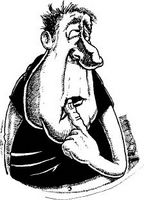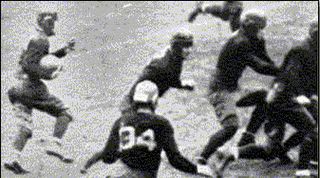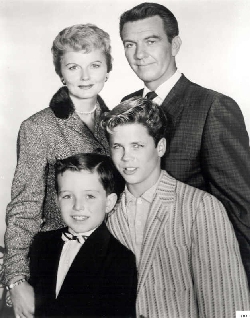Morality and Ethics seem to be utopian ideas for a non-utopian world. To decide whether someone acted ethically is ultimately to decide what is right and what is wrong. Ethics is the philosophical study of moral values and rules. To have moral values one must have right or good conduct. To be moral one must choose right over wrong despite environmental pressures. There are several dilemmas in the fight for an ethical and moral world. One dilemma would be the ability to distinguish right from wrong in all instances another would be the ability to do what is known to be right in all instances.
Aristotle pondered the first dilemma in length. He said in order to be ethical one must have virtue. In his writings on the nature of virtue, he concluded that virtues are found in a balanced response to ones environment. He decided it was a fight between excess and deficiency and that somwhere in the mean was virtue. However, it is not as easy as just a balanced response. Aristotle used the example of an athelets diet, two pounds of food is to little while ten is to much. Six pounds of food would be the mean yet could still be to much. How is humanity to decifer the mean correctly in all instances? How are we to decide what is right and what is wrong, correctly? What happens when we do not agree?
The second dilemma, doing what is known to be right, has been debated as well. Socrates believed that knowing what was right would result in doing what is right. Aristotle acknowledged the weekness of the will and concluded that one could act against knowledge of what is right. I would submit that people act according to reward. If they see a greater reward in one action as oppossed to another they will do it. Take a smoker that wants to quit as an example. He may want to quit yet still choose to smoke. The reward of a temporary nicotine fix is enough to persuade him to abandone what he thinks is good. We are all motivated by reward so the issues of morality and ethics ultimatly come down to desire.
Desire, what can be done about desire? It can be accussed of starting every war yet complimented for every romance. Many think the absence of desire would create a perfect world while others claim the absence of desire would create an absence of life in its truest sense. Moral education is our answer to the “problem” of desire. Moral education tries to teach people rightly-ordered desires or to desire what is actually good for them. Aristotle agreed with the modern world that the State should set up a form of moral education. The State, the government, our laws, are supposed to teach rightly- ordered desires, to teach us what is actually good for us.
The State is obvioulsy faced with a crucial task. They are to decide right from wrong. They are to define the highest standards of morality and display unsurpassed ethics. This would be hard for a good person to do yet many people debate whether or not politicians should be held to the same ethics as the public. Many people would say that a politicians private life (extramarital affairs, drug use, spouse abuse, lieing) has no bearing on his political life. I would have to conclude that politicians should be held to an even higher standard due to their high calling and far reaching influence, whether that be through passed laws or conduct. Despite the standard we hold politicians to I would submit that they will all fail to be perfectly moral and ethical at all times. I would also submit that collectivly even with the current checks and balances they will all fail to teach and exemplify perfect moral education. One mistake will be built on by further mistakes and ultimatly you can have a country fall, by underminning its moral values. To see this you need to look no further then History. Rome the most powerful nation in the world, at the time, fell due to this and so did WWI and WWII era Germany. So what must be done? What can be done to get people to do what is ultimatly best for them? How can human desires be brought into subjection?
In a utopian world everyone would have right desires. Therefore, everyone would have right morals and right ethics. Yet we find the world around us far from perfect. What is right and what is wrong is changed on a daily basis. How can we be moral if it is left to mere men to decide what is right and what is wrong, more importantly what is to be desired. The Founding Fathers recognized this problem at the formation of our country. They addressed it by accepting a creator who decide right from wrong and instilled in us unalienable rights. The Pledge of Allegiance echos this thought where it states that we are “one nation under God”.Their answer was that we are a nation subject to God, he defines what is right and wrong. He has the ability to change our desires. This idea along with other religious answers have been widley rejected.
I am left with my original thought but with a scary twist, Morality and Ethics seem to be utopian ideas for a non-utopian world. If no one else can truly define right and wrong or rightly-ordered desires then I am left to define them myself. If this argument is true, then I can do ethically and morally whatever my heart desires.
No wonder everyone thinks they are a good person...
 Love… Sometimes it seems like just another four letter word or a slap in the face more then a life saving, world changing idea. It is such an over used word now days. Just in case you forget to tell someone all year, there is a holiday to remind you. I’ve seen people that say they love each other act like people that hate each other. I’ve seen people use each other in the name of love. I even know people that confuse the site of a beautiful person with love. So what is love?...
Love… Sometimes it seems like just another four letter word or a slap in the face more then a life saving, world changing idea. It is such an over used word now days. Just in case you forget to tell someone all year, there is a holiday to remind you. I’ve seen people that say they love each other act like people that hate each other. I’ve seen people use each other in the name of love. I even know people that confuse the site of a beautiful person with love. So what is love?...

